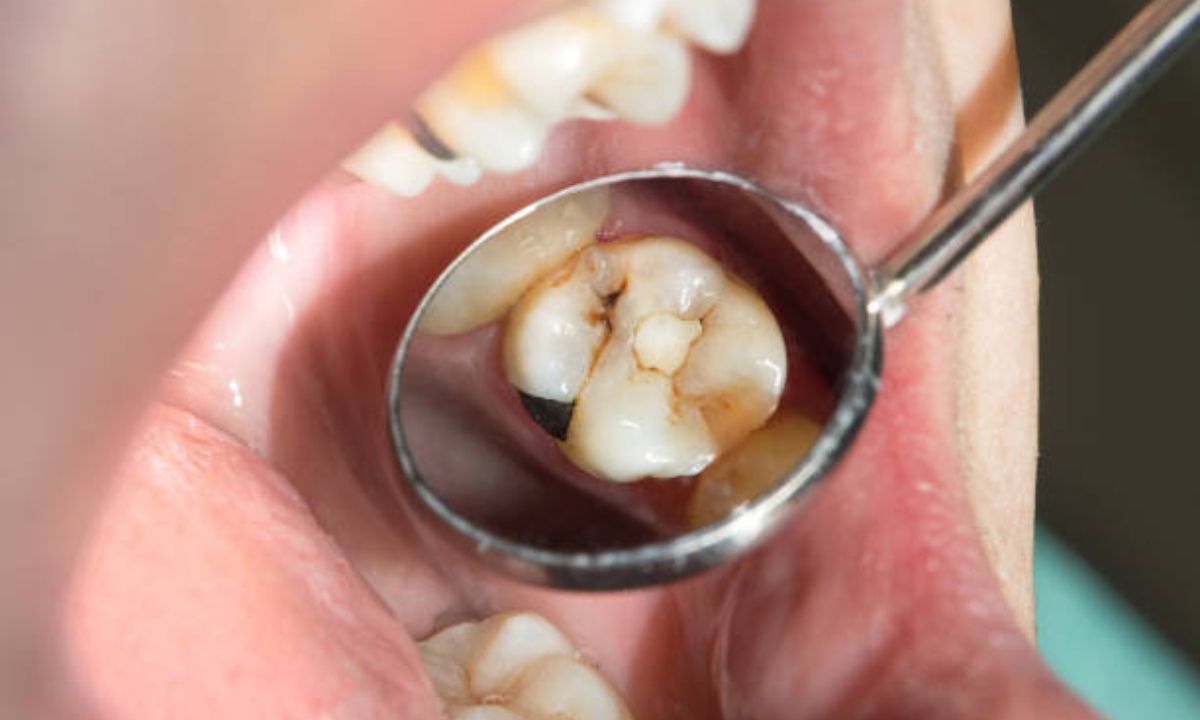Early childhood caries is a serious public health concern affecting infants and young children. This dental condition, once called baby bottle tooth decay, is characterized by one or more decayed, missing, or filled tooth surfaces in any primary tooth of a child under six years old. Early detection and intervention are crucial for maintaining healthy oral hygiene in children.
Parents often underestimate the importance of baby teeth, but these teeth play a vital role in speech development, nutrition, and guiding the eruption of permanent teeth. Neglecting primary teeth due to the assumption that they will eventually fall out can lead to significant dental issues, pain, and the need for costly treatments later in life.
In this guide, we’ll explore the causes of early childhood caries, its symptoms, available treatments, and most importantly, strategies for prevention. We’ll also touch on the significance of accessing reliable preventive dentistry services and finding a good dentist in Koramangala for timely intervention.
What is Early Childhood Caries?
Early childhood caries (ECC) is a form of tooth decay that affects children under the age of six. It can develop quickly and is most commonly seen in the upper front teeth, although other teeth may be affected. ECC is aggressive, and if left untreated, it can cause severe pain, infections, difficulty eating, and problems in the development of adult teeth.
Early Childhood Caries Causes
Understanding early childhood caries is essential for parents to implement preventative strategies. Some of the primary causes include:
- Poor oral hygiene practices in infants and toddlers
- Frequent consumption of sugary foods and drinks
- Prolonged bottle feeding, especially at night
- Sharing utensils or cleaning pacifiers with the caregiver’s mouth, which transfers harmful bacteria
- Lack of fluoride exposure
- Delayed dental visits
Carbohydrate-rich liquids left in a child’s mouth feed bacteria, which produce acid that destroys tooth enamel. The longer the exposure, the higher the risk.
Symptoms of Early Childhood Caries
Recognizing the early signs of ECC can help parents take action before the condition worsens. Common symptoms include:
- White spots or lines near the gumline
- Brown or black staining on teeth
- Visible pits or holes in teeth
- Complaints of pain or sensitivity
- Swelling in the gums
- Trouble eating or chewing food
ECC often progresses rapidly, so it’s critical to observe any changes in a child’s oral health and consult a dentist immediately.
Early Childhood Caries Treatment
Effective early childhood caries treatment depends on the stage and severity of the decay. Treatment options can range from fluoride varnish applications for early signs to more complex restorative procedures for advanced cases.
Treatment methods include:
- Topical fluoride application to strengthen enamel
- Dental fillings or crowns for decayed teeth
- Pulp therapy if decay reaches the nerve
- Tooth extraction in cases of severe infection or damage
Dentists may also recommend changes in diet, oral hygiene routines, and scheduled follow-up visits to prevent recurrence.
The Role of Preventive Dentistry
Preventive dentistry is vital in avoiding ECC. It includes regular dental check-ups, cleanings, fluoride treatments, and education on oral hygiene practices for parents and children. Preventive care starts even before the child’s first tooth appears.
Key elements of preventive care include:
- Routine dental visits every six months
- Teaching children how to brush and floss properly
- Encouraging a balanced diet low in sugars
- Applying dental sealants to protect the chewing surfaces
- Educating parents about bottle and pacifier hygiene
Early introduction to preventive care significantly lowers the risk of caries and builds a strong foundation for lifelong oral health.
First Dental Visit and Why It Matters
The ideal time for a child’s first dental visit is within six months after the first tooth erupts or by their first birthday. Early visits help in the early detection of ECC and also allow the dentist to guide parents on proper oral care routines.
These visits include:
- Examination of tooth and gum health
- Assessing feeding habits and risk factors
- Guidance on oral hygiene techniques
- Creating a personalized prevention plan
Establishing trust between the child and the dentist early on ensures that future visits are stress-free and productive.
Finding the Right Dentist
Choosing a child-friendly and experienced dentist at the dental hospital in Koramangala and HSR Layout is crucial. Pediatric dental hospitals offer an environment that caters to children and uses techniques suitable for their age and development level.
An experienced pediatric dentist can make the treatment process less intimidating and more effective. Clinics offering preventive and therapeutic dental care can help manage ECC successfully and educate families about sustainable oral health habits.
Lifestyle and Oral Care Tips to Prevent ECC
To protect your child from early childhood caries, incorporate these habits into daily routines:
- Avoid putting babies to bed with bottles containing milk or juice.
- Wean off the bottle by 12-14 months of age.
- Clean gums with a soft cloth even before teeth erupt.
- Use a rice-sized amount of fluoride toothpaste once teeth appear.
- Supervise brushing until the child is old enough to brush effectively.
- Limit snacking on sugary or sticky foods.
School-Age Oral Health and ECC Prevention
As children grow, their oral health needs evolve. Preschoolers and school-age children are still at risk of ECC, especially if early habits are not reinforced. Schools and parents should work together to provide education about brushing, healthy snacks, and the importance of routine dental visits.
This age group benefits from:
- Consistent oral hygiene routines
- Dental checkups every six months
- Participation in school-based preventive programs
- Ongoing parental support and supervision
Long-Term Impact of Early Childhood Caries
Beyond immediate pain and discomfort, untreated ECC can affect a child’s overall health, nutrition, and self-esteem. Chronic dental issues can also lead to absenteeism in school and poor academic performance. Ensuring oral health in the early years leads to healthier adult teeth and reduces long-term dental costs.
Conclusion
Early childhood caries remains a preventable but prevalent condition among young children. Recognizing early childhood caries causes, opting for prompt treatment, and practicing preventive dentistry are the cornerstones of protecting your child’s dental health. Finding the right dental hospital in Koramangala and HSR Layout can make all the difference.
For families looking for dedicated pediatric dental care, DDC Smiles offers compassionate preventive dentistry to manage early dental issues efficiently and comfortably.





